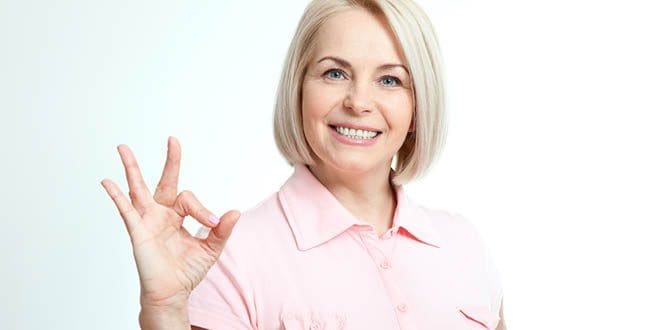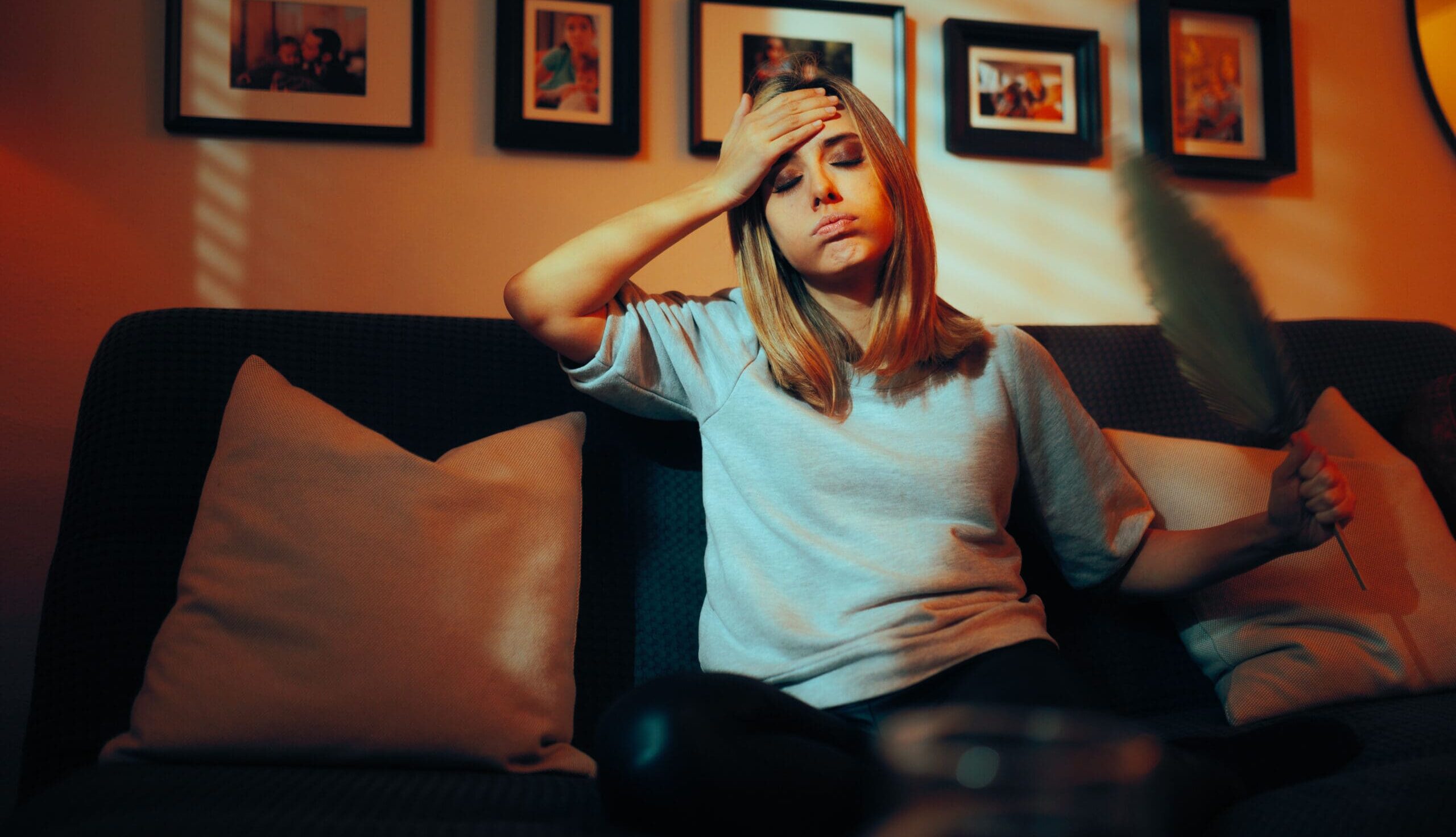Bioidentical versus Synthetic
The art and science of natural or bioidentical hormone replacement therapy (bioidentical hormones) has flourished in the last decade. The outdated supermarket style of HRT for treating menopause has been surpassed by a combination of natural hormones tailor-made to suit every individual woman.
Why is this so? Since a controversial study in 2002, HRT has been a hotly debated item. It was found that HRT increased the risk of breast cancer and subsequently this caused a decline in the number of women taking HRT for menopausal symptoms.
Today, only eight per cent of menopausal Australian women use conventional HRT, according to research by the Women’s Health Research Program at Melbourne’s Monash University.
However with 20 to 25 percent women suffering symptoms, women still need relief and many are turning to bioidentical hormones. Research shows that these treatments are associated with lower risks, including the risk of breast cancer and cardiovascular disease and are more effective than their synthetic and animal derived counterparts. Until evidence is found to the contrary, bioidentical hormones remain the preferred method of HRT, according to Kent Holtorf, MD of Holtorf Medical Group.
Another more recent study interviewed 25 women using bioidentical hormones. They told researchers they wanted relief from their menopausal symptoms, feel energised and avoid chronic illnesses associated with ageing. The women believed that taking bioidentical hormones would return them to an ‘optimal’ state.
Some women also feared the harmful side effects from conventional HRT in terms of increased risks for cancer, heart disease and high blood pressure and believed bioidentical hormones were ‘natural’ and safe.
So what is the difference between natural and synthetic hormones?
Natural hormones are chemically identical to the hormones produced by your own glands, which means your body cannot tell the difference between your own hormones and a natural hormone prescribed by your doctor.
Natural hormones are made in a laboratory from a plant hormone called diosgenin, which is extracted from yams and soybeans. Slight physical changes are made to the molecular structure of diosgenin and turned into natural human hormones such as oestrogen and progesterone, etc.
On the other hand, non-bioidentical hormones are not structurally identical to human hormones and may be chemically synthesised (synthetic progestins) or derived from a non-human source (equine oestrogens).
Bioidentical hormones are administered in the form of creams or lozenges (troches). The absorption from the troches is more rapid while the creams are well absorbed through the skin. They are absorbed directly into the circulation where they travel to their target tissues before the liver can break them down. Only small doses of the hormones are needed in the creams making them desirable for long term treatment.
When to use troches, instead of creams:
- Where creams are ineffective or inconvenient
- After a hysterectomy to complement the creams or as an alternative to the creams
- If the creams cause irritation to the skin and/or vagina
- If they cause breakthrough bleeding
When to use creams, instead of troches:
- If woman is high risk – such as varicose veins, past history of blood clots, liver and/or gallbladder disease, diabetes, Syndrome X, migraine headaches, high blood pressure, heart disease, asthma, allergies, fluid retention or excess weight and women who smoke.
While more randomised control trials are needed of substantial size and length, it appears that bioidentical hormones based on their efficacy are the preferred treatment for women.
Watch this short video of Dr Cabot interviewing one of her patients who has used bio-identical hormones
For more help, see Dr Sandra Cabot’s books:
- Hormone Replacement, The Real Truth
- Hormones – Don’t Let Them Ruin Your Life
- How Not to Kill Your Husband
- Increase Your Sex Drive Naturally
Story Sources:
Holtorf, K., MD., Holtorf Medical Group. “The Bioidentical Hormone Debate: Are Bioidentical Hormones Safer or More Efficacious than Commonly Used Synthetic Versions in HRT?” Postgraduate Medicine, Vol 121, Issue 1, January 2009.
Case Western Reserve University. “Women seek anti-aging clinicians to treat menopausal symptoms, study finds.” ScienceDaily. ScienceDaily, 18 August 2014.









Hi I am interested in the Bio identical Hormones For Menopause . Could You Please Send Me the Information On this As well as What tests I need .That Would Be great .I am Having Hot Flushes ,Weight Gain .Have Tried Chinese Herbs And Acupunture And Was reccomended by One Of Your Customers .Looking Forward For Any Imformation .
Hi Donna,
Thanks for your comment. I have sent you an email with information 🙂
Kind regards,
Louise
I think I need bio identical hormones for menopause . I am having late menopause symptoms as Im 62 . I am having hot flushes weight loss mood swings ,dry skin , constipation
depression etc . Could you send me info on the bio identical hormones and tests that I need . thanks for your time
Hi Hanny,
Thank you for your comment. I have emailed you some information regarding bioidentical hormones and how you can obtain a script for them.
Kind regards,
Louise
Sorry Louise Belle did not receive email regarding bioindentical hormones and how to get a script and what tests I need
thanks for your time Hanny
Hi Hanny,
The email definitely went through on our end. I’ll send it again.
Try looking in your junk folder because it contains attachments.
The email will come from: info@cabotclinics.com.au
Kind regards,
Louise
Hi can you please send me info on how to get a script for natural hormones… I am 55 and have been having hot flushes,night sweats,foggy brain, no libido ,inflammation and don’t want to have HRT. I have read that natural progesterone can help a lot of these symptoms. would appreciate your wisdom – thank you.
Hi Belinda,
You would need to book a consultation with a doctor that prescribes bioidentical hormones in order to obtain a script.
Dr Sandra Cabot and Dr Catherine Casey at the Camden Holistic Health Clinic prescribe bioidentical hormones and the consultation can be done via phone or Zoom if you aren’t local.
You can call or email the clinic for more information.
Kind regards,
Louise
I am interested in information on bioidentical hormones. Thank you!
Hi Jo,
I have sent you an email with information 🙂
If it doesn’t come through, please check your junk folder as it has an attachment.
Kind regards,
Louise
Hi, I have a bad sleeping problem have tried many things at 74 I wonder if bioidentical hormones would help. I’d like more info please .Thank you
Hi Marilyn,
The best thing to do would be to call our free health advisory line and speak to our naturopath Victoria who knows a lot about hormones – she will be able to give you advice 🙂
02 4655 4666
Kind regards,
Louise
Hi
I would like to set up a consultation as soon as possible as I urgently require Bioidentical hormones as I have very bad symptoms
Hi Sharon,
You can book a consultation with Dr Casey for bioidentical hormones –
0411 755 008
camdenholistic@gmail.com
Kind regards,
Louise